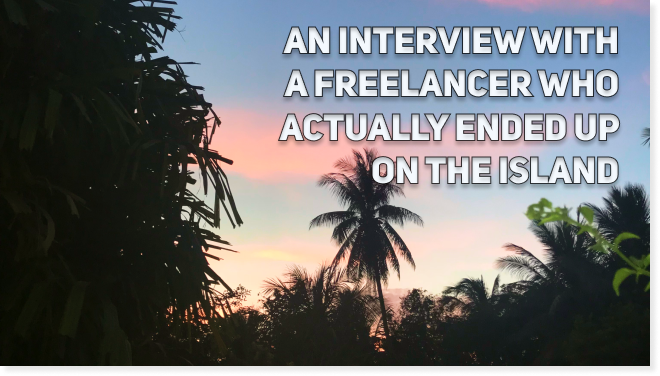Introduction
In today’s competitive job market, panel interviews have emerged as a prevalent assessment method utilized by organizations seeking to evaluate candidates more comprehensively. Unlike traditional one-on-one interviews, panel interviews present unique challenges and opportunities, as candidates must engage with multiple interviewers, often from diverse professional backgrounds. This format not only necessitates a robust understanding of one’s qualifications but also the ability to adapt to varied questioning styles and dynamics. Mastering panel interview preparation is thus indispensable for candidates aiming to distinguish themselves in a crowded field. This article delineates essential strategies that will equip candidates with the tools necessary to approach panel interviews with confidence and poise. We will explore techniques for research, presentation, and engagement that collectively enhance the likelihood of success in this rigorous evaluation setting.
Table of Contents
- Understanding the Structure and Dynamics of Panel Interviews
- Researching Panel Members to Tailor Your Responses
- Crafting a Cohesive Narrative to Engage Multiple Interviewers
- Practicing Effective Communication Techniques for Group Settings
- Final Thoughts
Understanding the Structure and Dynamics of Panel Interviews
Panel interviews are structured to assess candidates from multiple perspectives, making it essential to understand the panels’ composition and dynamics. Typically composed of various stakeholders, such as hiring managers, team members, and HR representatives, each panelist has distinct interests and evaluation criteria. This multifaceted approach aids organizations in gathering comprehensive insights about a candidate’s suitability for the role. To succeed in this environment, it’s crucial to recognize the roles of each interviewer and how they might influence the discussion. For example, while one panelist may focus on technical competencies, another might emphasize cultural fit, necessitating a well-rounded demonstration of skills and adaptability.
Moreover, the flow of a panel interview can vary greatly, often resembling a dynamic conversation rather than a rigid Q&A session. Candidates should be prepared to engage with each panelist directly while maintaining a cohesive narrative throughout their responses. To facilitate effective communication, it’s beneficial to follow these strategies:
- Make Eye Contact: Maintain eye contact with different panel members as you address their questions.
- Engage Each Interviewer: Acknowledge all panelists during responses to foster inclusivity.
- Utilize Structured Responses: Apply frameworks like STAR (Situation, Task, Action, Result) to provide clarity and impact.
Researching Panel Members to Tailor Your Responses
Understanding the backgrounds and expertise of your panel members is essential for effective communication during your interview. Conduct thorough research to gain insight into each member’s professional history, industry contributions, and personal interests. This will allow you to tailor your responses to their specific areas of expertise. Consider the following strategies:
- LinkedIn Profiles: Review their LinkedIn profiles for professional achievements and connections.
- Publications: Look for any articles, papers, or books they have authored to understand their viewpoints.
- Social Media: Follow their social media accounts to catch real-time insights on their interests and opinions.
- Company Websites: Check the ‘About Us’ sections of their organizations for further context on their roles.
Armed with this information, you can structure your answers to resonate more effectively with each panel member. For example, if one panelist has a strong emphasis on sustainability, you might highlight your commitment to environmentally friendly practices in your responses. To organize your findings, you can create a simple table to compare the relevant attributes of each member:
| Panel Member | Expertise | Key Interests |
|---|---|---|
| Dr. Jane Smith | Environmental Science | Sustainability Solutions |
| Mr. John Doe | Technology Innovation | AI and Machine Learning |
| Ms. Emily White | Human Resources | Diversity and Inclusion |
Crafting a Cohesive Narrative to Engage Multiple Interviewers
In a panel interview, your ability to weave a cohesive narrative is paramount. Each interviewer may have a distinct focus—ranging from skills and experiences to cultural fit and strategic thinking. To effectively engage varied perspectives, begin by identifying key themes within your background that align with the role. Organize your responses around these themes to create a consistent and compelling story that resonates with each panel member. Consider using a framework such as the STAR method (Situation, Task, Action, Result) to craft anecdotes that are not only relevant but also exhibit your problem-solving capabilities and accomplishments in a way that highlights your value to the organization.
It is also beneficial to prepare for specific questions that different interviewers might ask based on their roles. For instance, a technical interviewer might focus on your specific skills, while an HR representative may inquire about your team dynamics. To facilitate this, compile a table of possible questions along with your tailored responses:
| Interviewer Role | Potential Question | Your Tailored Response |
|---|---|---|
| Technical | Can you describe a challenging project? | Discuss a specific project where you overcame obstacles through innovative solutions. |
| HR | How do you handle conflict within a team? | Share an example of conflict resolution that resulted in positive outcomes. |
| Manager | What is your management style? | Outline your approach to leadership that encourages team collaboration and productivity. |
This structured preparation not only enhances your narrative but also demonstrates to the panel that you understand the multifaceted nature of team dynamics, thereby boosting your confidence and engagement throughout the interview process.
Practicing Effective Communication Techniques for Group Settings
Effective communication in group settings is crucial for successful panel interviews. Engaging with multiple interviewers requires a balance of clarity and confidence. To achieve this, consider employing the following techniques:
- Active Listening: Pay close attention to each panelist’s questions and comments to respond thoughtfully.
- Body Language: Maintain an open posture and make eye contact with all members to convey confidence and respect.
- Concise Responses: Provide clear answers without over-explaining; aim for brevity to maintain the group’s interest.
- Encourage Dialogue: Invite follow-up questions and engage in a discussion when appropriate to show your enthusiasm.
Moreover, it’s beneficial to establish a communication matrix to streamline interactions. This can help you prepare for varying panel dynamics. Consider using a simple table format like the one below to map out potential questions and corresponding key points:
| Question Category | Key Points to Address |
|---|---|
| Technical Expertise | Relevant experience, specific skills, related projects |
| Team Collaboration | Examples of teamwork, adaptability, conflict resolution |
| Problem-Solving | Approach to challenges, critical thinking process |
Using these strategies and tools will foster a more engaging and productive discussion during your panel interview, positioning you as a compelling candidate.
Final Thoughts
effectively preparing for a panel interview requires a multifaceted approach that encompasses understanding the dynamics of the panel, mastering your subject matter, and honing your communication skills. By implementing the strategies discussed in this article—such as thorough research on panel members, practice through mock interviews, and formulating insightful questions—you will enhance your confidence and performance during the interview process.
Ultimately, the key to success lies in a strategic blend of preparation and adaptability. As you navigate the complexities of panel interviews, remember that each interaction is an opportunity to showcase not only your expertise but also your ability to engage constructively with diverse perspectives. By embracing these essential strategies and maintaining a professional attitude, you can ensure that you make a positive and lasting impression on your interviewers. Prepare diligently, approach each panel with poise, and position yourself as a standout candidate in any selection process.






